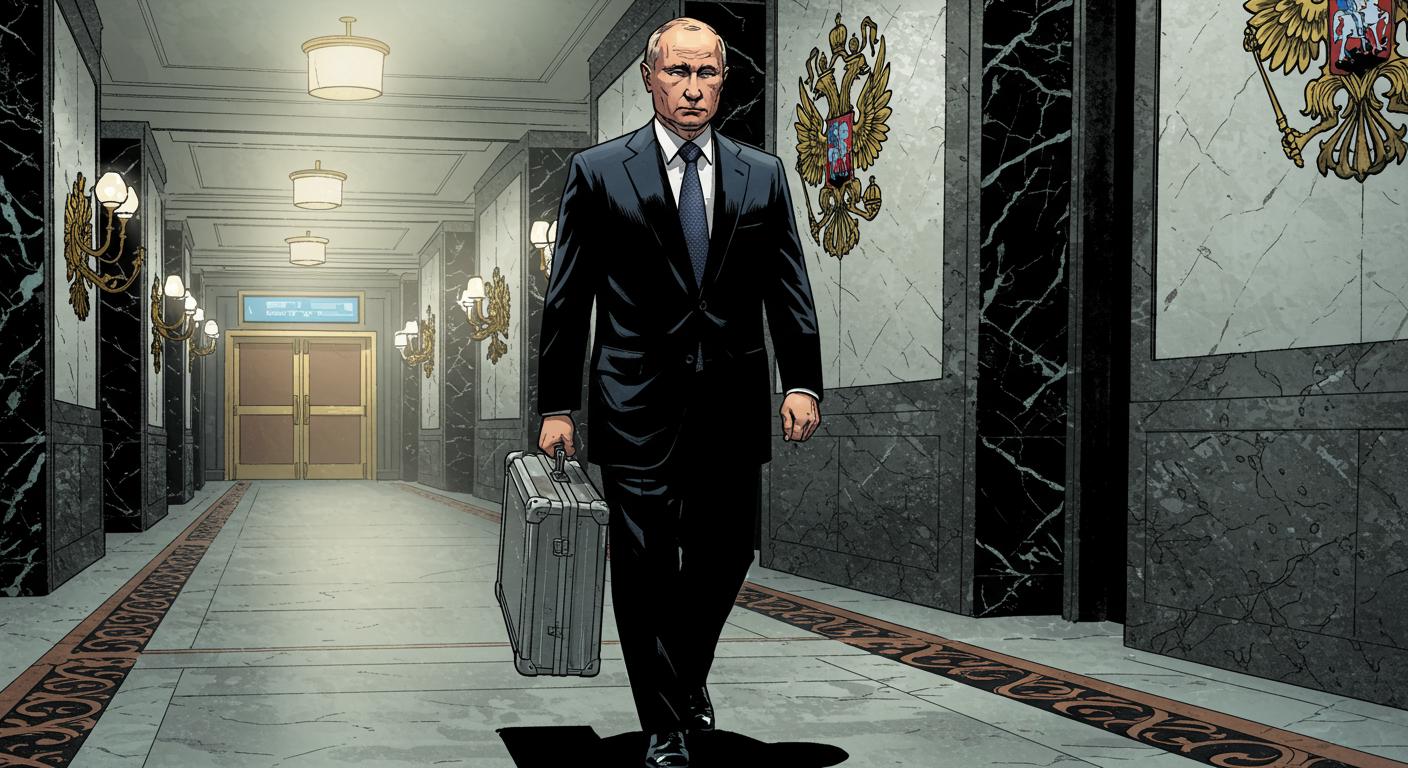There are few certainties in geopolitics, but here’s one: whenever Vladimir Putin leaves Russian soil, he brings a little piece of home with him. And I do mean little. In a detail that sits somewhere between deadpan bureaucracy and outright farce, The Express details how, for years, Putin’s Federal Protection Service (FPS) has been tasked with gathering his, let’s call it, “personal effects” whenever he’s abroad. The collection, stowed in a dedicated briefcase, is discreetly returned to Russia—a kind of diplomatic baggage claim that’s anything but standard-issue.
Not Your Average Luggage
This protocol isn’t a one-off or a recent innovation. Journalists Regis Gente and Mikhail Rubin, cited in The Express, reported that the collection routine has been part of Putin’s foreign travel for years, appearing during events like his 2017 trip to France. During that excursion, FPS members were apparently spotted with special collection bags destined for Russian turf along with their highly guarded VIP. Farida Rustamova, a former BBC journalist, described how on another state visit—to Vienna in 2018—Putin’s entourage rolled out a private bathroom setup, complete with a portable toilet reserved strictly for the president.
Grouping these observations together, what emerges is a ritual that seems clinical yet oddly theatrical: bodily samples are scrupulously managed so as not to fall into foreign hands. The Express highlights the underlying rationale—preventing adversarial intelligence agencies from, quite literally, scooping up data on Putin’s health through forensic analysis. Contemporary spycraft, it seems, is just as interested in stool samples as in state secrets. Does someone in Russian intelligence keep a tally of these missions? Is there a medal for most successful retrieval?
Precaution, Paranoia, or Just the New Normal?
All this folds neatly into the ever-active narrative swirl around Putin’s wellbeing. As the report summarizes, rumor and speculation about his health have circulated for years: shaky legs during a televised event in Kazakhstan, seat twitching on a visit to Belarus, and the now-legendary claim (sourced from the General SVR Telegram channel) that he suffered a stair-related mishap with indignity to match. The Express connects these moments, along with alleged cardiac incidents and persistent theories of neurological decline, to the Kremlin’s ultra-cautious approach—no detail, however unglamorous, left unguarded.
One can’t help wondering at what point this all becomes performance art. Is it really about medical privacy, or is there a bit of theater here too—another layer for a man not known for spontaneous transparency? Or does this simply put a finicky, human face on the otherwise inscrutable machinery of state power?
A Most Personal Form of Statecraft
Set against the backdrop of the Alaska summit between Putin and Trump, and possible upcoming talks with Ukraine’s Zelensky, this backstory serves up a strangely poignant reminder: for all the pomp, some things remain humblingly universal. While protestors gather and high-level negotiations unfold, a small, overqualified suitcase lingers somewhere backstage, bearing diplomatic cargo that’s more delicate than any communique.
It’s curious to consider how other world leaders measure up in this particular department—or whether tales of presidential plumbing form an entire, hidden history in international relations. Is this the gold standard in personal security, a new chapter in intelligence paranoia, or simply the world leader oddity to out-odd them all?
Somewhere, archived far from the red carpets and press conferences, are the contents of history’s most secretive suitcase. Would anyone have guessed that geopolitics could be this down-to-earth?







